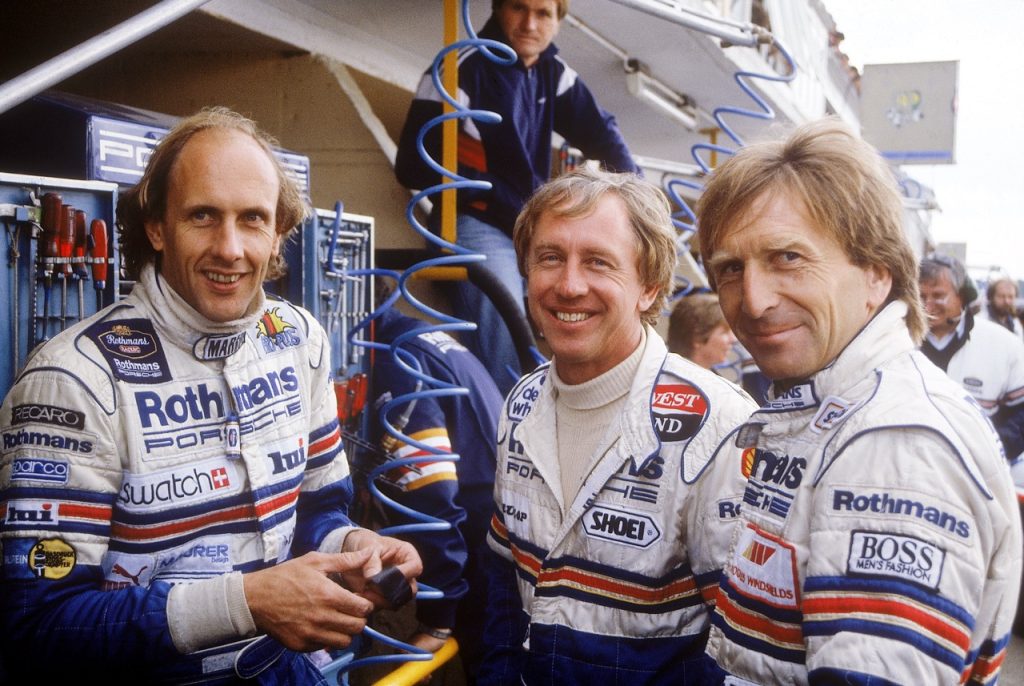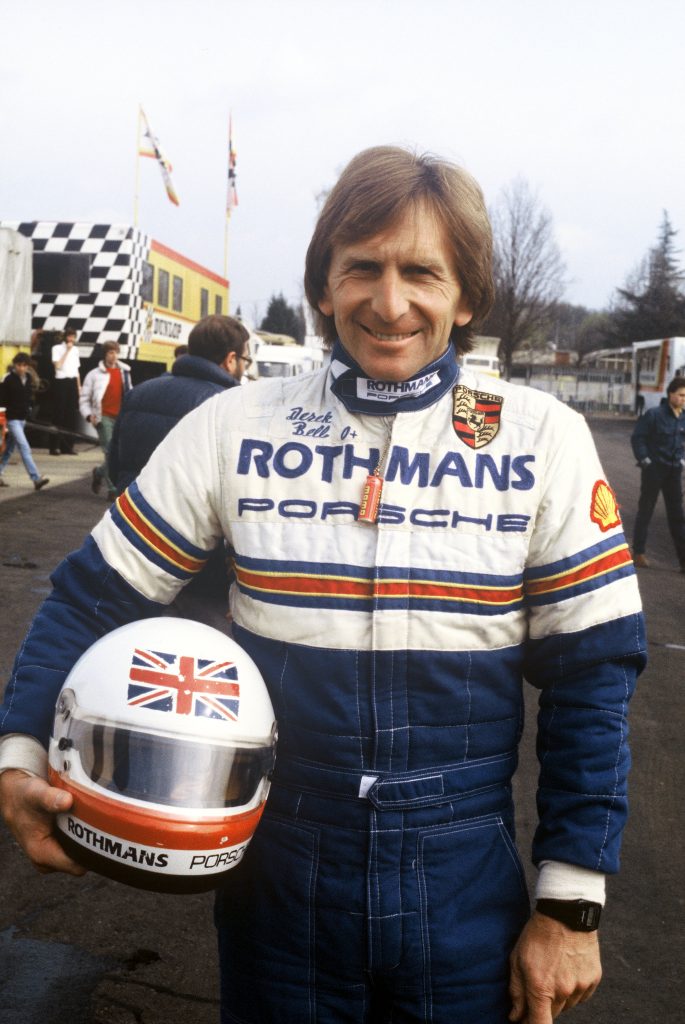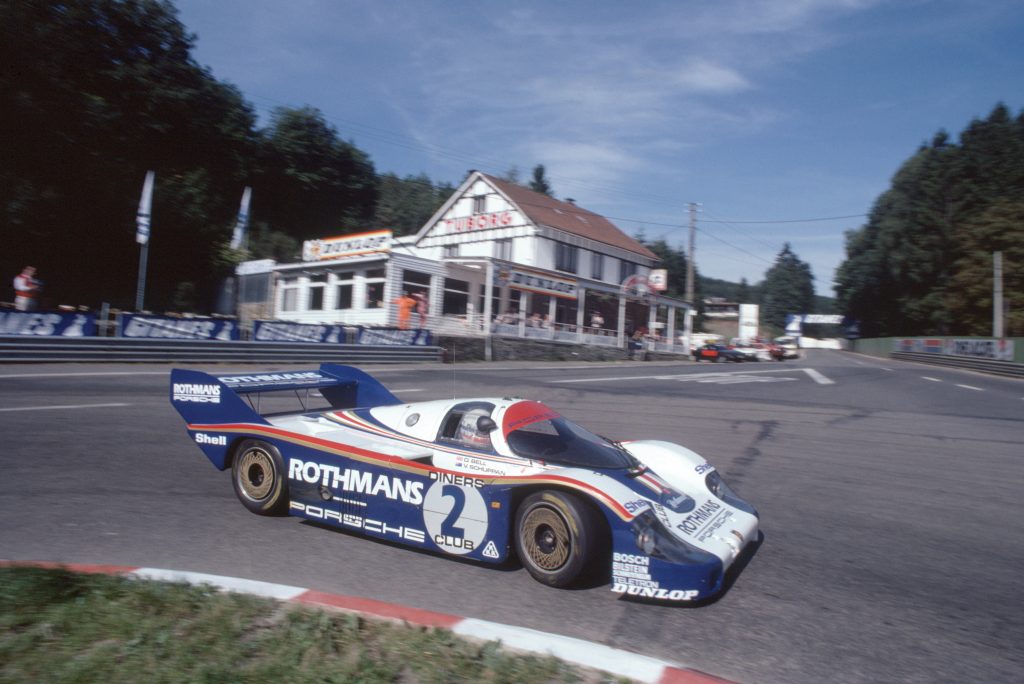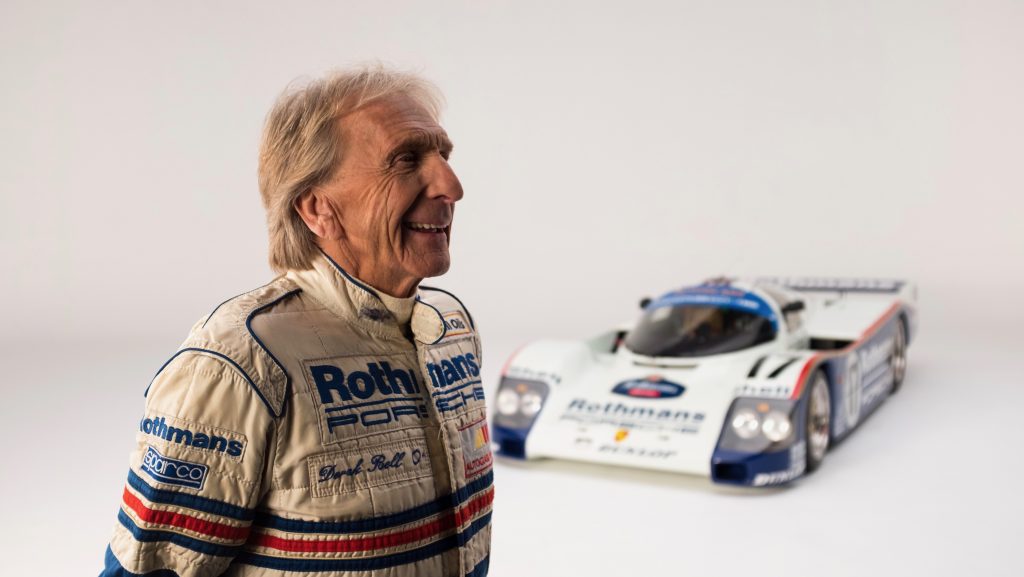Words: Charlotte Vowden
Photographs: Derek Bell
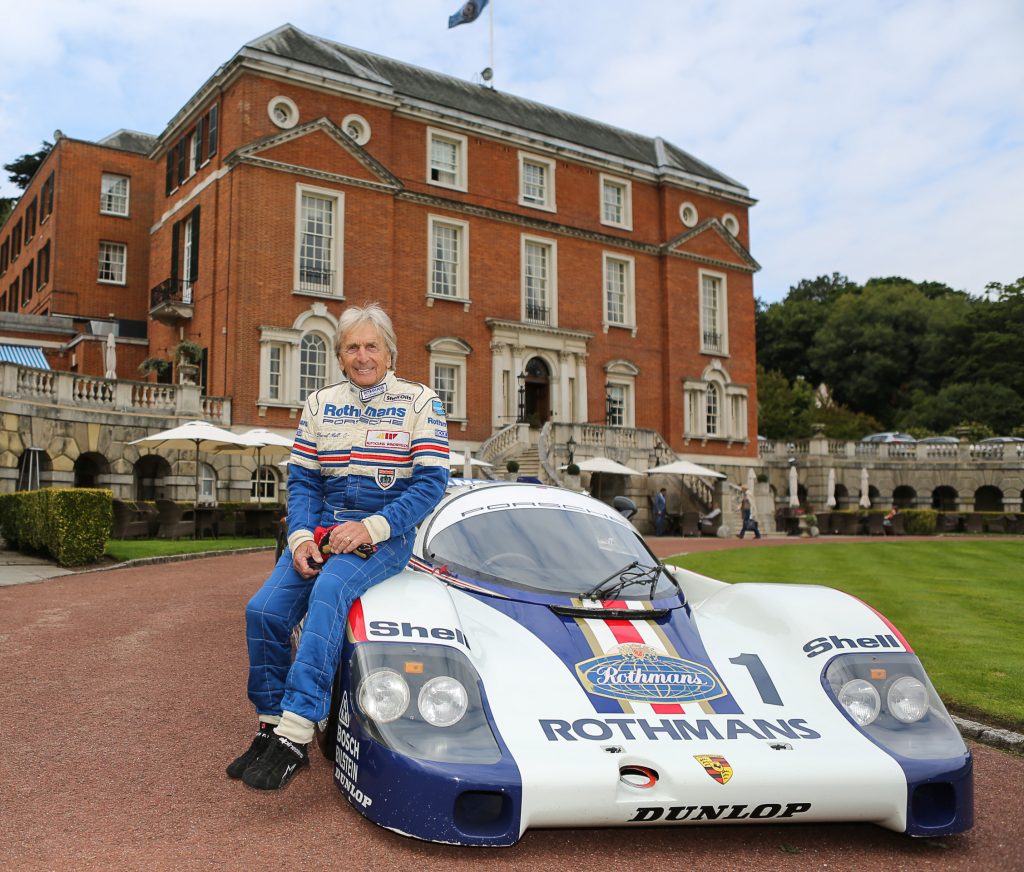
F1 at 75: The first in a new series to celebrate the 75th anniversary of Formula One, Derek Bell reflects on racing during some of the sport’s most dangerous years
Interview by Charlotte Vowden
“Tragically, accidents happened far too frequently in Formula One and the story got round that within an hour of hearing about an accident in a race, knowing the driver wouldn’t be available the next week, there were drivers who would phone up the team to get the drive. I never did try to jump into dead men’s shoes. I just couldn’t do that sort of thing.
Motor racing was hellishly dangerous, but I don’t think we were brave. You look back and go, that was bloody stupid, I shouldn’t have done that. It was all about having the best car and we all had that passion to win. I can’t say I went to many of funerals, most of them took place in different parts of world, but there were a few that I went to. I would commemorate people in my own way.
There was such a great sense of camaraderie amongst us all, but it was a strange time because motorsport was dangerous and a lot of people were having accidents. I’d go to bed at night thinking ‘What am I doing this for? Why isn’t it me that’s getting hurt?’. Of course it did weigh on you, but it also made you appreciate your own life so much more, as well as the people you were with. Every single driver went through it, but we didn’t talk about it, unfortunately it was just par for the course at that time.
For example, when dear old Chris Lambert, a delightful young man, died at Zandvoort in 1968. I got pole position in the 166 Dino F2 car and Chris was right behind me. He was fabulously quick, but he was touched by somebody going down the main straight and it tipped him over into the pedestrian tunnel. You knew it was a bad one, but they didn’t tell you, you could just tell by the atmosphere. They got us back to the start line and the race was re-started an hour later. You did these things to the finish – through thick and thin – and analyse it afterwards, on your own. Or, read about what happened in the magazines. Talking about it all now, years later, it’s still remarkably vivid.
Ronnie Peterson was a cracking guy and we were good friends, we grew up together in Formula 2 and I drove at Le Mans with him with Ferrari. When you look at the accident that led to his death, and what happened afterwards, well, those things bother you, but they don’t stop you. We all knew the risks. We tried to make the tracks better, and Sir Jackie Stewart, who many drivers were critical of, was fantastic in his efforts to make things safer. You also put a lot of trust in the people around you; the mechanics, the engineers, the whole team. None of us wanted to have a fatality.
I had a great relationship with Stefan Bellof, he called me father, and I called him son. I respected him as a brilliant young star, he’d go out and do electrifying laps. His death in 1985 was tragic. He took a chance that day at the Spa 1000 km, a fatal one. I’ve seen footage of the crash and what happened was an awful accident, and you can’t blame him for having a go. I’m still close to his family and feel that, in a way, I wish I said something to him and told him to take it easy, but I was the older driver with experience and he was 20 and wanted to prove himself; he didn’t want to slow down.
I didn’t sit in a race car until I was 23. I drove Jeeps and tractors on the farm but it wasn’t exactly 200-mile-an-hour stuff; the fastest thing I drove was a Fordson tractor at 12mph. I never considered I was a good driver but on reflection, when I look back on it all, I didn’t do badly for a farmer. I made my track debut in a Lotus 7 in 1964 and won my first race at Goodwood, my home circuit, in the pouring rain. Two years later I was the leading British driver in F3 in Europe, and the year after that I was racing for Ferrari in F2. By aged 27 I was driving for Ferrari in Formula One. I did quite a good job in my first GP; I was on the third row of the grid alongside Jackie Stewart and Denny Hulme, who were both world champs at the time. Can you believe it? Today I’d be a bloody hero and never look back.
In my day, the money wasn’t in F1 like it is today. It’s a big business and it’s not necessarily your talent that gets you there. The last time I drove a car fast was more than ten years ago when I was filming with the Top Gear lads. They asked me to drive Emerson Fittipaldi’s JPS Lotus 72. I did get such a thrill and a half out of that. I would love to drive a current Formula One car, something totally up to date, but that’s too much to expect. I’ve got 80 years of amazing memories, of going faster and faster, even in the Porsche 917 at 246 mph at Le Mans.”
What’s your favourite racing memory? We would love to hear from you at hdc@hagerty.co.uk
